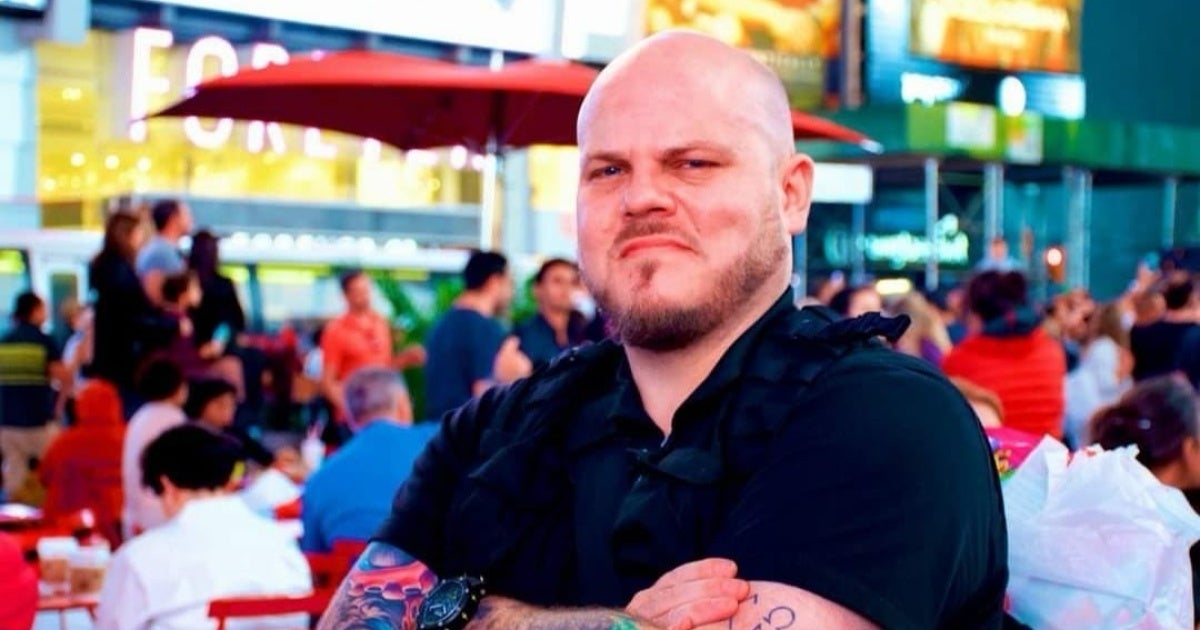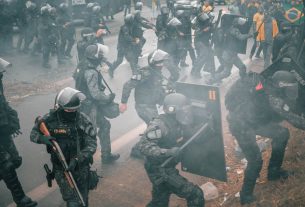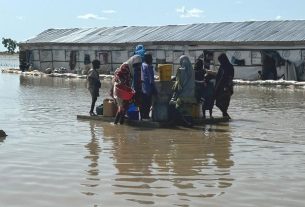(Washington) – A new report by international forensic experts commissioned by Human Rights Watch found significant flaws in the hospital care and later investigation into the death in custody of a former top security adviser to the El Salvador government.
Security forces arrested Alejandro Muyshondt, then a national security adviser to President Nayib Bukele, on August 9, 2023, after he accused pro-Bukele officials of corruption and ties to drug trafficking. He was held incommunicado and subjected to enforced disappearance. He died in custody, at age 46, on February 7, 2024. The International Rehabilitation Council for Torture Victims and its Independent Forensic Expert Group analyzed over 2,000 pages of Muyshondt’s medical records. They found substantial gaps in the medical records, lack of evidence supporting official diagnoses, and a failure to conduct a transparent death investigation.
“The expert analysis reveals deeply troubling flaws in the treatment of Alejandro Muyshondt and the later investigation into his death,” said Juanita Goebertus Estrada, Americas director at Human Rights Watch. “These findings fit within a much broader pattern of human rights violations and abuse of power in El Salvador.”
The Independent Forensic Expert Group is an international body of 42 preeminent independent forensic specialists from 23 countries, who are recognized global leaders in the medico-legal investigation of torture, ill-treatment, and unlawful killing. The International Rehabilitation Council for Tortured Victims, a coalition of 167 rehabilitation centers in 76 countries, is the world’s leading center of knowledge on the physical and psychological effects of torture and ill-treatment. Máximo Duque, a surgeon and specialist in forensic medicine and forensic anthropology, and James Lin, the expert group’s coordinator and a university lecturer, wrote the report.
A few days before his detention, Muyshondt used social media to accuse Erick García, a pro-Bukele lawmaker, of money laundering and drug trafficking. He also accused Ernesto Sanabria, Bukele’s press secretary, of corruption. García was subsequently arrested, prosecuted, and convicted of making fraudulent statements on official documents, and sentenced to five years in prison. Sanabria remains in his post. The authorities have not publicly reported conducting any investigations against him.
A family member told Human Rights Watch that, from the time of his arrest, Muyshondt was held incommunicado and that his family was denied information about his whereabouts in what amounts to an enforced disappearance under international human rights law. A public defender told the family member that Muyshondt was not allowed to participate in an August 25, 2023, hearing at which a judge sent him to pretrial detention. Muyshondt was charged with offenses related to allegations that he revealed information to former president Mauricio Funes (2009-2014) that may have enabled Funes, who has been convicted of corruption and other offenses, to evade justice. Funes has been a fugitive in Nicaragua since 2016.
On December 4, a judge denied a request by Muyshondt’s mother for information about her son’s whereabouts and medical condition. The judge, whose decision Human Rights Watch reviewed, cited “national security concerns” and said that the case was “classified.”
According to medical records, Muyshondt died on February 7, 2024. The records indicate he had multiple health conditions, including meningitis, brain hemorrhage, multiple organ failure, and stomach cancer. However, the international forensic experts concluded that while hospital records are “reputedly complete,” they “lack key supporting laboratory and radiological evidence that is necessary to confirm these conditions.”
The doctors diagnosed Muyshondt with a brain hemorrhage, which can be caused by trauma and may be the result of torture or ill-treatment. Yet the experts found that the medical records did not include “any radiological images that establish Mr. Muyshondt suffered from a brain hemorrhage and whether such condition was due to disease or trauma.” Similarly, they found that the studies reported “do not confirm multiple organ failure as they show no signs of kidney or major liver failure.”
The experts also found that the “level of disorganization” of the medical records “presents a significant flaw in the hospital care process as it impedes the ability of patient, family, or others to understand and track the individual’s condition and the treatment and care provided.”
Human Rights Watch reviewed a copy of Muyshondt’s death certificate, which indicates that he died of “pulmonary edema.” The certificate says that these findings are “preliminary,” notes that “further studies” are needed, and says that a post-mortem examination (autopsy) was conducted. However, his family has not been made aware of any further studies and has not been provided with a copy of the autopsy report, a family member said.
The forensic experts found that the investigation into Muyshondt’s death was conducted in a manner inconsistent with the United Nations Minnesota Protocol, a set of international guidelines on how to investigate potentially unlawful deaths. The experts’ report included recommendations for Salvadoran authorities, including providing the autopsy report and investigatory records to the family and, at their request, exhuming the body to conduct new studies.
Muyshondt’s death takes place in a context of widespread human rights violations that have gone uninvestigated and unpunished in El Salvador, Human Rights Watch said.
Since March 2022, El Salvador has been under a state of emergency that suspended some constitutional rights, including due process guarantees, to address gang violence. Security forces have since carried out mass arrests, and engaged in due process violations, and torture and ill-treatment of detainees, including against children.
According to the Central American human rights group Cristosal, at least 261 detainees have died in prison during the state of emergency. Human Rights Watch found that in several cases the circumstances of the deaths suggest state responsibility.
Foreign governments should publicly and privately raise concerns about the human rights situation in El Salvador, including at the UN Human Rights Council’s upcoming Universal Periodic Review (UPR) of the country’s human rights record.
“The government’s unwillingness to provide clear answers about what happened to Muyshondt and dozens of others who have died in custody demands increased international scrutiny on the human rights situation in El Salvador,” Goebertus said.



